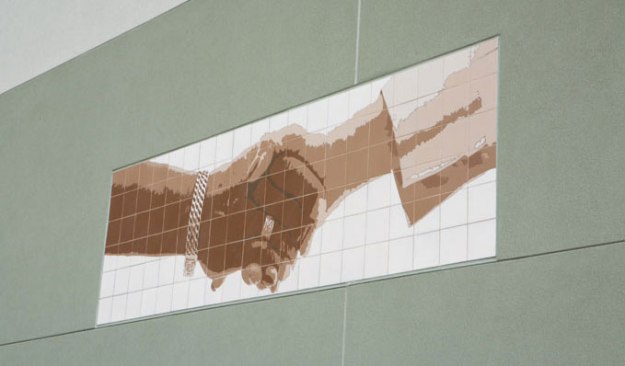A few nights ago hubby and I went to a training with Spero Project, the refugee organization here in Oklahoma City. The training was called Restorative Relationships and focused on how our job is not to “save” the refugees but rather to become their neighbor. The discussion made me realize that I need to change my own perspective and reflect on the composition of a neighbor.
We moved to Oklahoma City just a year and half ago. The move was tough as we didn’t know anyone here. But in the midst of the challenges, there was our neighbor Lynda, who has showed me repetitively what being a neighbor really means. The night we moved in, she brought us dinner. When I was outside picking the pecans in our front yard, she came and joined me. She’s offered to watch Eleanor, asked if I needed anything from the grocery store, and we regularly meet for coffee. Lynda has never made me feel like she was “saving” me but rather that she has been in my shoes and knows that a little extra help would be nice. Personally, I feel like this kind of neighborliness is a dying art in the US. So often we don’t even know the names of our neighbors.
After watching the relationships within the refugee community, they also seem to get the meaning of neighbors. They watch out for each other’s kids, give each other rides to work, and always are ready to boil a pot of tea for a spur of the moment conversation. I think Spero has to do the Restorative Relationship training with us because in all honesty, the refugee community has a lot to teach us about being a neighbor. It is so often our tendency as Americans to walk in and try to fix things rather than to build relationships. We see an under-resourced community and forget that the community has so much to offer us as well.
Every year in Oklahoma City we get 165 new neighbors who are refugees from Myanmar, Iraq, Afghanistan, Eritrea, and several other countries. So as hubby and I get more involved with Spero, our hope is we can reach out to our new neighbors and make them feel as welcome as Lynda made me feel last year when we were new to town.
Have a great weekend and if you have a chance, try to meet your neighbors!



